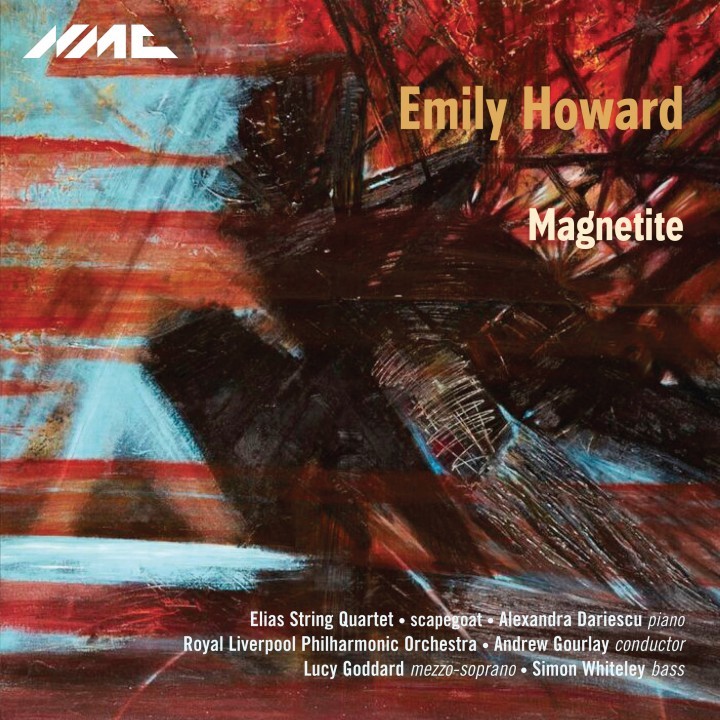The impact of AI on the music industry part 1 | ISM
12th September 2023
Articles NMC RecordingsIn the first of a two-part feature in partnership with the Independent Society of Musicians (ISM) all about music and the growth of artificial intelligence, Stuart Darke, the ISM's Director of Legal Services, writes about the wide-ranging affects AI may have on many parts of the music industry, from the potential of AI to replace composers and performers, to issues with copyright.
Not a day goes by, it seems, when there isn’t a media story about artificial intelligence (AI). However, not many investigate the impact that AI will have on a particular workforce. The Independent Society of Musicians (ISM) is increasingly worried about the impact developments in AI will have on musicians and the wider workforce in the music industry.
Computer-generated music is not new. In the 19th century, in her writings about Charles Babbage’s Analytical Engine, the mathematician Ada Lovelace pondered whether the engine might be able to compose music. And computer scientist and mathematician Alan Turing produced computer generated music in 1951.
Artificial intelligence has been used in music for a number of years. Apps like Shazam help users find music by rapidly searching music libraries; and digital streaming and social media platforms use algorithms to drive users to stay on the platform and continue to access music. Remember, part of their business model is to sell users’ views or listens to advertisers.
Risk to jobs
The speed of growth in AI has accelerated in the past ten years. Apps and software have been developed which help musicians and non-musicians to create music using AI. There are also those which require no human input beyond making some initial selections. It is the latter which may pose the biggest risk to jobs and opportunities.
Currently they are focused on production music for videos and computer games and mood music - examples being Jukedeck, now owned by TikTok’s parent company, and AIVA. Jukedeck offers users the ability to specify the length of music required and the style or genre. The AI would then produce a piece of music which could be downloaded and synced to a video.
The primary market for this is video content creators who might not want to engage a composer or purchase tracks from a music production library. These types of applications will have an impact on musicians who write music for corporate videos, games and music production libraries.
Erosion of opportunities
The use of AI may also start to erode opportunities for musicians in the production of music for film and TV. Famous composers such as John Williams may not be under threat, but smaller budget productions may use AI to produce soundtracks rather than commission specific works.
Humans may still be required to record music for film and TV but it won’t be long before computers completely replace the humans who currently play instruments on such tracks.
OpenAI, the organisation behind ChatGPT, admits that Jukebox - their neural net that generates music, including rudimentary singing - is still not as good as human generated music. However, Jukebox has produced music in the style of artists such as Elvis Presley, Frank Sinatra and Katy Perry.
If live musicians are no longer required, it will have a huge impact on already meagre incomes.
Live music may not be immune
Spotify already has playlists with tracks which are produced using AI. Taryn Southern’s album I am AI claims to be the first solo artist album composed and produced by AI. The question is whether there is a tipping point where AI can generate music indistinguishable from something written and played by a human. At that point, will musicians be required at all?
Live music may not be immune from the effects of AI music either. Consider the ABBA Voyage concerts and reports that discussions are underway about similar avatar concerts featuring the late David Bowie. If live musicians are no longer required, this will have a huge impact on their already meagre incomes.
In the long term, there may be an impact on music education too as fewer teachers will be required if the need to learn to play instruments diminishes. Music education is already in a perilous state and technological change could act as a further nail in the coffin.
Copyright conundrums
The issue of copyright will also need to be resolved with the further growth of AI. Questions will abound about the ownership of pieces and how the AI will learn about music. If AI takes existing pieces of music to create new music, then should existed rights-holders be compensated and by how much?
It is interesting to note that AIVA, the application mentioned early, has been recognised by French collecting society SACEM as being the author of musical pieces, but the US Copyright Office has said that AI generated illustrations are not protected by copyright law.
The ISM’s worries about the impact of AI on jobs and opportunities does not mean that technological developments and the use of AI should be stopped. However, there needs to be an honest and open debate about the moral and economic implications that AI will have on the music industry. Such discussions should involve musicians and consider both the short and long-term effects on jobs and opportunities as well as the rights of creators and performers.
Stuart Darke is the Director of Legal Services for the Independent Society of Musicians.
Article first published at www.artsprofessional.co.uk, 19-06-2023.
NMC's Discover platform is created in partnership with ISM Trust.
Related Music

Emily Howard: Magnetite
NMC Recordings
Magnetite is the first portrait album from composer Emily Howard, released 2016, featuring the Royal Liverpool Philharmonic Orchestra conducted by Andrew Gourlay
Find out more & buy